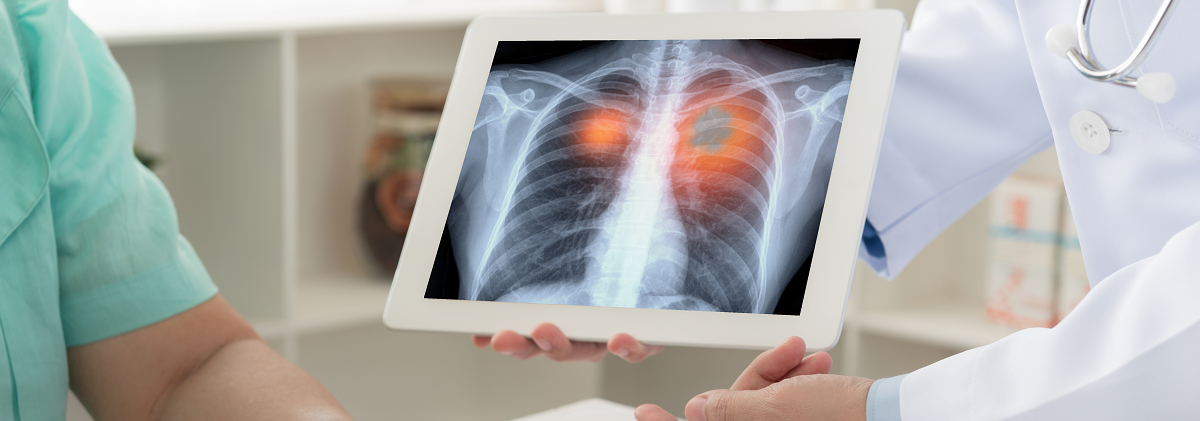
Are your patients safe from radon?
What is radon?
Radon is a known human carcinogen and is a leading cause of lung cancer in the United States. It is a naturally occurring radioactive gas that comes from the breakdown of uranium in the soil that can enter your home from the soil beneath it. Radon is a colorless, odorless, and tasteless gas, so testing your home for radon is the only way to know if your home has a radon problem.
Radon produces radioactive particles that cause lung cancer when inhaled into the lungs.
Radon is common throughout Colorado.
Why is radon a concern?
Radon is known to cause lung cancer and it can seep into our homes and workplaces through cracks and openings in floors and crawlspaces. When this happens, radon becomes part of the air we breathe.
Can radon make me sick?
- When a person is exposed to radon over many years the exposure can increase the risk of lung cancer. Radon is the second-leading cause of lung cancer in the United States, only smoking causes more lung cancer. Radon is the leading cause of lung cancer in people without a history of smoking.
- Each year, about 21,000 deaths in the United States are related to radon-caused lung cancer. Risk of lung cancer from radon is almost 10 times higher for those with a history of smoking compared to those who have never smoked. Smoking and radon together create greater risk of lung cancer than either one alone.
Tobacco Smoking and Radon
The risk of lung cancer from radon is almost 10 times higher for those who currently smoke cigarettes compared to those who have never smoked. Individuals who quit smoking may have a lower risk of lung cancer from radon than those who currently smoke. Smoking and exposure to radon together create a greater risk of lung cancer than either one alone. Cigarette smoke contains thousands of different chemicals, many of which are toxic or cause cancer.
Cigarette smoke also greatly increases the number of tiny particles in the air in a home. The radioactive particles produced by radon gas readily attach to the smoke particles and stay suspended in the air for long periods of time for people and pets to inhale. There is no safe amount of firsthand or secondhand tobacco smoke.
There is very little research on vaping and radon at this time. Since vaping produces even more fine particles than cigarettes, radon most likely attaches to vaping clouds as well as cigarette smoke.
Use your radon results and smoking history to check your radon risk with these charts
Cannabis and Radon
There is very little research on the combined effects of radon and smoking or vaping cannabis at this time. However, like tobacco smoking and vaping, smoking or vaping cannabis indoors most likely increases the number of fine particles in the air. The radioactive particles produced by radon gas have a static charge and readily attach to small particles. They stay suspended in the air for long periods of time, allowing people and pets to inhale them.
Who is at risk?
- Anyone exposed to radon over a long period of time is at risk for lung cancer.
- Smokers are at higher risk of lung cancer. Exposure to a combination of smoking and radon creates a greater risk than either factor alone.
- While some studies have reported that children are at greater risk than adults for certain types of radiation, currently there is no conclusive data that their radon risk is greater than adults.
- In Colorado we have high levels of radon in our soils. Data collected on indoor air radon levels indicates that most counties in Colorado have average levels higher than 4 picocuries per liter (pCi/L), which is the level at which the EPA recommends radon mitigation.
How can risk be reduced?
Test your house for radon and mitigate if radon levels are above 4 pCi/L. You should test for radon even if your home has a radon mitigation system installed.
Avoid smoking or vaping indoors to protect your loved ones. Consider quitting smoking or vaping to reduce your risk of lung cancer.
Find free help to quit smoking
Radon From a Physician's Perspective
- Objectives.
- Participant introductions.
- Physics of radon.
- How radon enters a building.
- Cause of health effects.
- Evidence of risk in humans.
- Miner studies.
- Residential studies.
- Pooled studies.
- Relevance of radon as a public health risk.
- How significant of a health risk?
- Radon testing.
- Radon mitigation.
- Radon professionals.
- Radon as part of a preventative program.
- Conclusions.